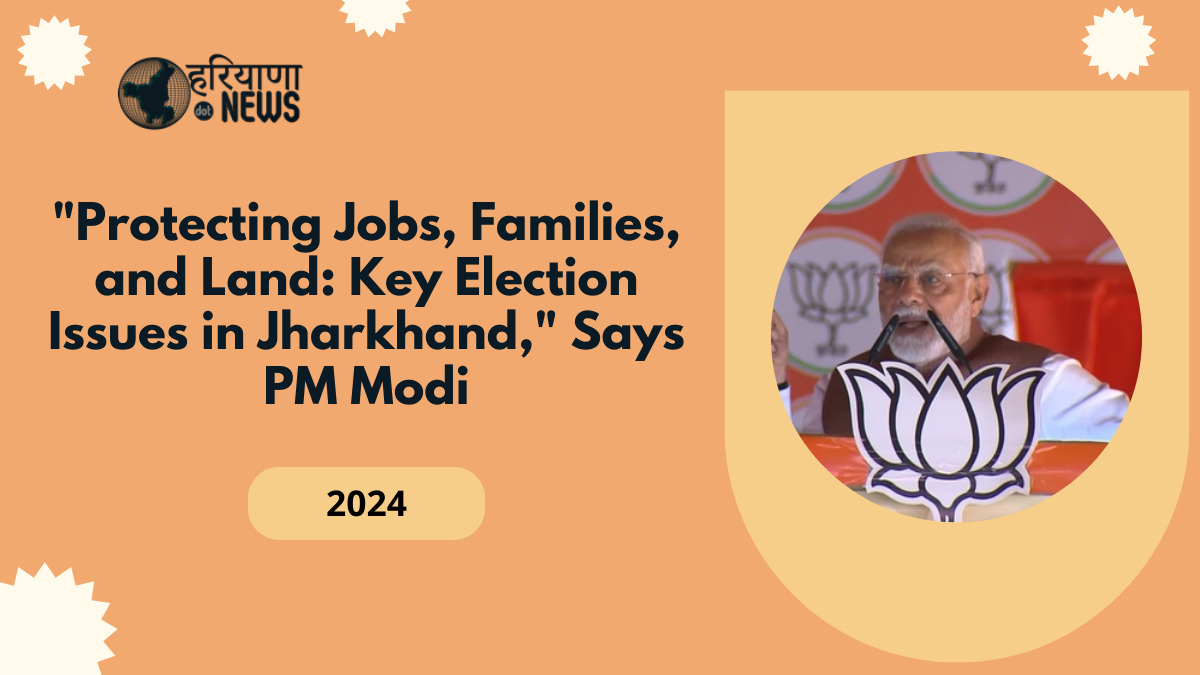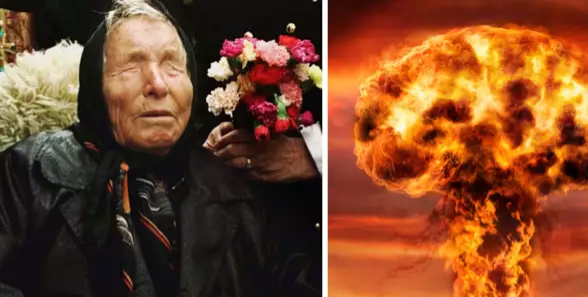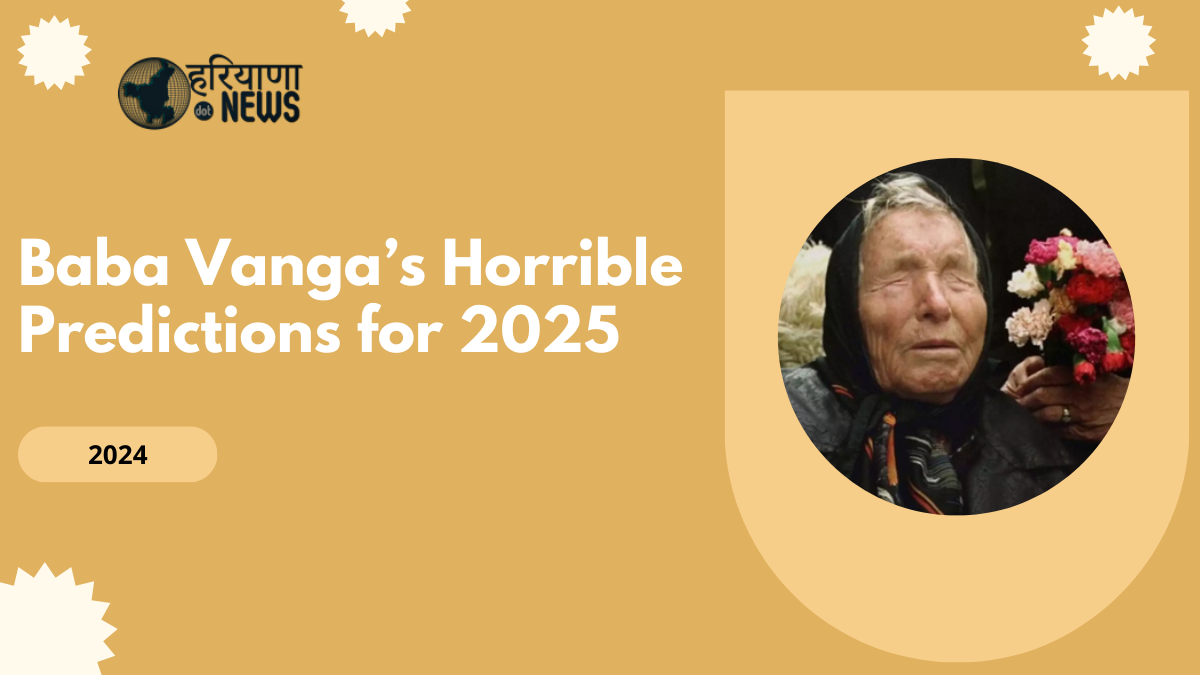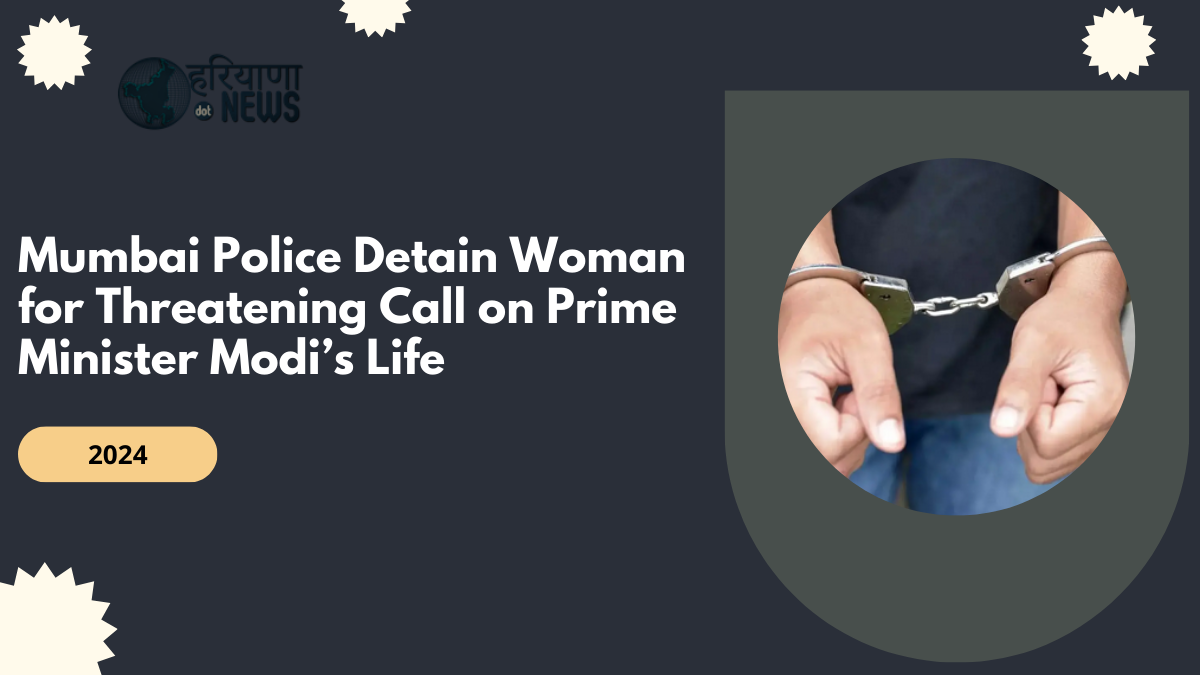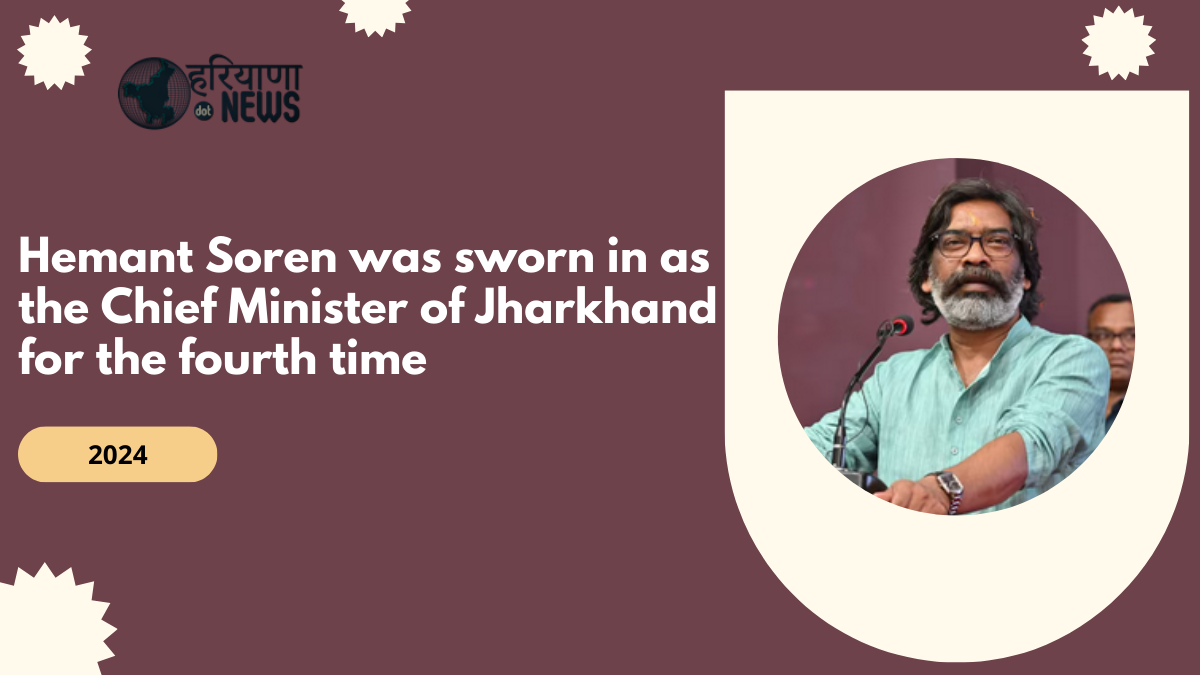Prime Minister Narendra Modi has stated that the core issues in the upcoming Jharkhand election centre around the protection of essential rights, livelihoods, and the cultural heritage of the local people. He has raised concerns over what he calls a “large-scale plot” aimed at altering Jharkhand’s social fabric and identity, particularly through increasing infiltration.
Speaking at a campaign event in Sarath, located in the Deoghar district, PM Modi highlighted the shrinking tribal population in the Santhal region, attributing this decline partly to the ongoing issue of infiltration. He urged voters to safeguard the tribal community’s heritage and expressed concern that the tribal population in Santhal is now only half of what it once was.
Key Election Issues in Jharkhand
“Across Jharkhand, people’s biggest worry is infiltration,” Modi emphasized. “Current data suggests that Santhal’s tribal numbers have been halved. We must work to secure the rights of these communities and protect the distinct identity of every Jharkhandi.”
This statement came as voting proceeded across 43 of the 81 assembly seats during the first phase of the Jharkhand legislative elections, which are divided into two stages, scheduled on November 13 and 20. Results will be announced on November 23.
Accusations Against the JMM-Congress Government
During his address, PM Modi accused the Jharkhand Mukti Morcha (JMM)-Congress coalition government of enabling unauthorized settlers to gain a foothold in Jharkhand, allegedly allowing these infiltrators to claim permanent residency in the state. According to Modi, this has led to a loss of employment opportunities and resources for local residents, which he described as an attack on “roti, beti, and maati”—symbolizing the people’s food, families, and land.
Modi stated, “Under the JMM-Congress leadership, numerous steps have been taken to legitimize these infiltrators as permanent residents. These newcomers have taken away your jobs and livelihood. The JMM government itself admitted in court that infiltration is occurring in the state. In this election, our priority is the protection of roti, beti, and maati, and the BJP is committed to safeguarding them.”
Criticisms of Congress’s Stance on Tribal and Caste Reservations
Modi’s remarks also included strong criticism of the Congress party’s stance toward tribal and other marginalized communities. He alleged that Congress has consistently undermined the tribal population and expressed fears that they aim to dismantle existing reservation systems. Specifically, he claimed that Congress is opposed to providing reserved positions for Scheduled Castes (SC), Scheduled Tribes (ST), and Other Backward Classes (OBC).
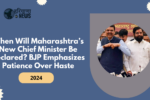 When Will Maharashtra’s New Chief Minister Be Declared? BJP Emphasizes Patience Over Haste
When Will Maharashtra’s New Chief Minister Be Declared? BJP Emphasizes Patience Over Haste
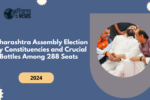 Maharashtra Assembly Election: Key Constituencies and Crucial Battles Among 288 Seats
Maharashtra Assembly Election: Key Constituencies and Crucial Battles Among 288 Seats
 Kailash Gahlot Joins BJP Following Departure from AAP and Delhi Cabinet
Kailash Gahlot Joins BJP Following Departure from AAP and Delhi Cabinet
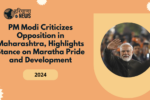 PM Modi Criticizes Opposition in Maharashtra, Highlights Stance on Maratha Pride and Development
PM Modi Criticizes Opposition in Maharashtra, Highlights Stance on Maratha Pride and Development
 Donald Trump Calls PM Modi a ‘Total Killer’ and Reflects on the Historic ‘Howdy Modi’ Event
Donald Trump Calls PM Modi a ‘Total Killer’ and Reflects on the Historic ‘Howdy Modi’ Event





He referenced Congress’s previous actions, mentioning the party’s opposition when the BJP proposed a tribal woman, President Droupadi Murmu, as a presidential candidate. “When the BJP nominated a tribal daughter for President, Congress made every effort to defeat her and even today, they continue to show disrespect toward President Murmu,” Modi remarked.
Modi further accused Congress leaders of harboring “dangerous intentions,” and mentioned that a prominent Congress figure recently advocated for ending reservations for SC, ST, and OBC groups, which he described as a threat to social equity.
Conclusion
PM Modi’s campaign message underscores the importance of preserving Jharkhand’s unique identity and protecting local communities from outside influences. With these concerns at the forefront, Modi’s address emphasized the BJP’s commitment to safeguarding local livelihoods, ensuring cultural preservation, and advocating for the rights of marginalized groups. As voting continues in Jharkhand, these key issues are expected to shape the discourse in the remaining phases of the election.
Click here to know more.

